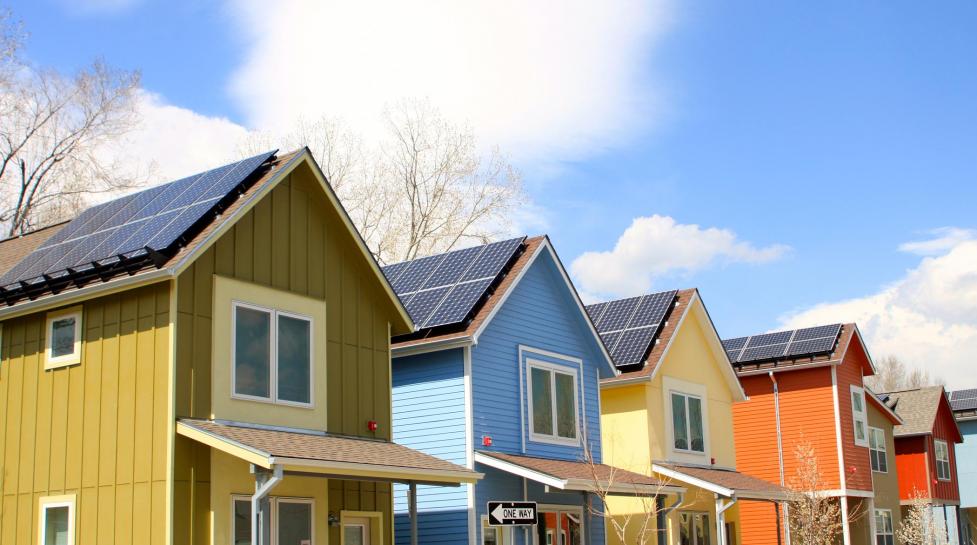Panel met May 9 to deliver the recommendations from two working groups
Panel met May 9 to deliver the recommendations from two working groups
“We need a roadmap.”
Peter Lilienthal kicked off a presentation Monday to his fellow members of the Xcel Energy Partnership Community Advisory Panel discussing how to achieve zero emissions electricity.
Lilienthal, along with several other panel members, has been spending the past four months thinking about how the city’s partnership with Xcel Energy could help the city achieve 100% renewable energy by the end of the decade. The working group’s thinking culminated with a presentation of recommendations to city and Xcel Energy staff.
In 2020, Boulder voters directed the city to enter a new partnership with Xcel Energy. Guiding this partnership are the community’s energy and climate goals, like 100% renewable electricity and at least 100 megawatts of local solar and hydroelectricity by 2030.
The working group took a detailed look at the barriers to achieving emissions-free electricity and identified steps the city and Xcel should take to overcome them. Currently, Xcel Energy is on track to reduce emissions more than 80% in their electricity generation. This leaves a gap to the community’s goal.
To close that gap, the working group recommends that the city and Xcel develop a clear roadmap to achieve 100% renewable energy. The roadmap would spell out how the city and Xcel will build more renewable and storage infrastructure. And it matters where new renewable energy gets built.
“Local generation counts more,” said Lilienthal. “The only way we increase resilience on the system is if the generation is local.”
The working group also stressed that whatever solutions are identified for Boulder must also be accessible beyond our city limits to have the greatest impact. Projects should add new resources beyond what Xcel would otherwise do on their own, and Boulder’s emissions reduction should not be achieved exclusively through the purchase of renewable energy credits (RECs).
“Boulder’s not an island. We’re connected to this larger Xcel system,” said Lilienthal. “What we want to do needs to be additive, but it can’t be done in isolation.”
Learn more: Read the recommendations and watch the discussion.
“Today, electric solutions are cleaner than continuing to use natural gas.”
A second working group presented their ideas for how to speed up the electrification of Boulder’s buildings.
Right now, there are several aspects of our lives that currently depend on fossil fuels, whether that's heating our homes and water with natural gas, or powering our vehicles with gasoline or diesel. These are all significant sources of emissions that must transition to electricity to achieve our community’s climate goals. In fact, by 2030, transportation and natural gas emissions are set to become more than 95% of the community’s total carbon footprint.
The good news, according to the working group, is that viable electric options exist today. We simply need more people and businesses to adopt them.
Right now, a barrier to adoption is cost, said working group member Stephanie Hsiung. “Generally, there are larger upfront costs when it comes to replacements. On the residential side, there is a pretty robust set of rebates available, but there are no rebates offered for commercial buildings to undertake electrification.”
To overcome these barriers, the working group recommends that Xcel and the city develop a comprehensive program to incentivize, support and require commercial building electrification. There are specific challenges to electrifying certain businesses, but the city and Xcel could address these by offering “carrots,” like rebates and incentives, as well as “sticks,” like tighter regulation.
Another barrier is awareness of current technology. For example, cold weather heat pumps are viable in Colorado’s climate, said working group member Andy Sayler. The city and Xcel must focus on “education around how well [electric heat pumps] actually work.”
The working group recommends the city and Xcel expand residential electrification programs to grow community awareness, build expertise among contractors and retailers, and support homeowners in installing electric appliances proactively and/or at time of replacement.
“To proactively start to move toward electrification is a big component of this is education,” said Sayler. “What can we do to get folks to think a little bit more about burning fossil fuels inside houses and what that means? How do we convince them that things like induction [cooktops] are viable alternatives?”
Learn more: Read the recommendations and watch the discussion.
